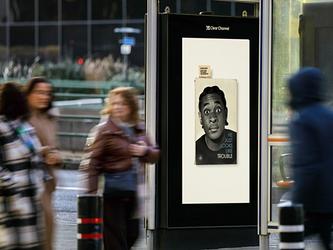Shanice Mears, co-founder, The Elephant Room: ‘We have to be actively anti-racist’
First, can you tell us about The Elephant Room?
The Elephant Room is a creative agency dedicated to creating a more inclusive space within advertising, not only through work and representation, but also through methods of building business. We want to be an example of change.
What does your role as head of talent involve?
It’s my job to make sure we have a network of creative talent, both in advertising and outside of it. But also to be up to date with what is happening in culture across the world, so that we can be on the pulse and well positioned to work on the most culturally effective projects.
What’s the background to the ‘one month mentors’ programme?
The project matches young people who want to venture into creative careers with senior and C-suite leaders, and aims to help young talent build sustainable relationships in the industry. This is centred on the calendar year – Black History Month, International Women’s Month, and Pride, particularly for mentees who identify as such, and exclusive to them for that month. Ultimately, we’re on a mission to support talent.
Did research have any role in the development of this?
Yes, but I feel like my role is all about research. I often speak to talent about what they want. I read articles, I listen to podcasts and think about what I would have needed if it was me in someone else’s shoes, or if I wasn’t in a position to do what I do now. My day-to-day understanding of the industry is my research, and then it’s bouncing those ideas off my team.
How important is mentoring for young black employees and potential employees?
Extremely important. Black people within the workplace need to feel empowered, and, more often than not, they don’t. We often face stereotypes, lack of belonging, prejudice and discrimination, which doesn’t always enable us to progress within, or remain with, a company. We often choose to opt out to avoid conflict, awkwardness or sadness.
Everyone deserves to be empowered in the workplace – it just happens to be that we are a minority who often feel ignored.
There’s a lot of talk about inclusion. How can organisations be more accountable?
Do what you say and mean it. It’s not enough to talk, or participate in agency and client debate. We have to be actively anti-racist and call out the behaviours that are unacceptable. No-one in their own skin, ability, sexual orientation, class or background should feel lesser – or worse, not accepted – in any workplace in times like now. It’s just not OK.
You were asked to sit on Downing Street’s Race Disparity Audit. What did that involve?
I sat on the race advisory board, which meant analysing data and programmes in the NHS, education, and around police stop and search. It meant discussing the figures and advising on how to improve our understanding of why they are that way in the first place. I was among other leaders and community activists.
Is a lack of data contributing to systemic barriers?
You could say that, but it’s a lack of education, understanding and a touch of ignorance about why we have systemic barriers. There is evidence out there that classism, racism, sexism and things such as the gender and ethnicity pay gap exist – and that is because of the leadership that has historically been in place.
Last year, you wrote a piece published in CAMPAIGN, in response to the ad industry’s open letter in the midst of the Black Lives Matter movement. Have you noticed any changes in the industry’s policies around hiring methods, wellbeing and ethnicity pay-gap data since?
The census from the Institute of Practitioners in Advertising and the Advertising Association is a start to see a) how far we have come, and b) how far we’ve yet to go. Initiatives and programmes are a good way of starting things. I sit on the steering group for [diversity campaign] ‘#10000BlackInterns’, which I think is a great initiative – I encourage everyone to sign up.
There’s been some transparency around data, but not enough.
What should organisations do to better engage with prospective new hires?
Dedicate a team of people within the recruiting team to get into communities, do research, and meet new people. If people are proud of the company and where they work, they will want to share that sentiment with others.
This article was first published in the April 2021 issue of Impact.
Photography by Lucy B

We hope you enjoyed this article.
Research Live is published by MRS.
The Market Research Society (MRS) exists to promote and protect the research sector, showcasing how research delivers impact for businesses and government.
Members of MRS enjoy many benefits including tailoured policy guidance, discounts on training and conferences, and access to member-only content.
For example, there's an archive of winning case studies from over a decade of MRS Awards.
Find out more about the benefits of joining MRS here.














0 Comments